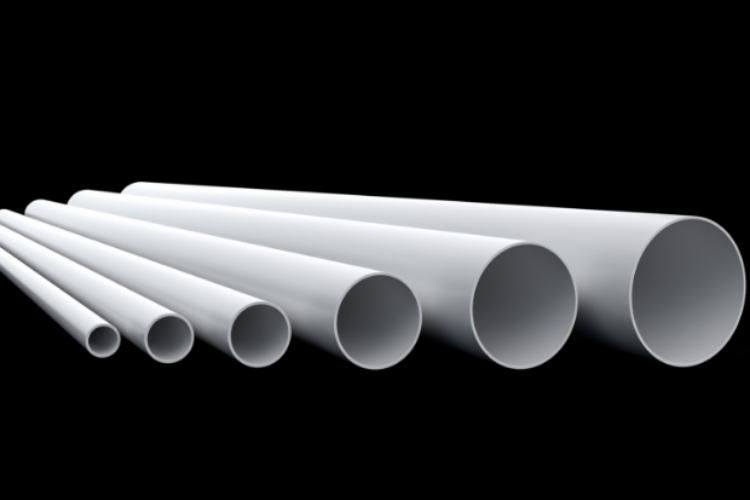Defining Ceramic Tubes
Ceramic tubing is exactly what it sounds like: tubes made from specialized ceramic materials designed for high-temperature and industrial use. These tubes are crafted to hold up under intense heat, heavy wear, and even corrosive environments. You'll often find ceramic tubing in alumina, silicon carbide, and quartz, each offering unique properties suited to different applications.
Unlike metals or plastics, ceramic tubing doesn't warp, crack, or break down when exposed to high temperatures. Its structure remains stable even under extreme conditions, making it an ideal choice for settings where reliability is a must. Whether in industrial furnaces or specialized lab equipment, ceramic tubes are known for their high thermal stability, durability, and corrosion resistance.
Properties of Ceramic Tubes for High-Temperature Environments
Ceramic tubing performs under pressure — literally. It offers a combination of thermal stability, durability, and resistance to harsh conditions that other materials can't match. Here's a look at why ceramic tubing is so effective in demanding environments.
Thermal Stability
Ceramic tubing holds its shape and strength even at high temperatures, making it perfect for industrial applications where other materials might melt, warp, or weaken. This stability is especially valuable in furnaces and equipment that must operate at consistent high heat without interruptions.
Durability Against Wear and Corrosion
Unlike metal, which can corrode or weaken over time, ceramic tubing can withstand harsh chemicals and abrasive conditions without degrading. This makes it ideal for industries that deal with corrosive substances or high-friction environments.
Resistance to Thermal Shock
When exposed to sudden changes in temperature, many materials crack or break under stress. Ceramic tube, however, is highly resistant to thermal shock, allowing it to go from high to low temperatures (or vice versa) without damage. This is a big advantage in processes that require rapid heating and cooling cycles.
Low Thermal Conductivity
Ceramic tubing is also a natural insulator, which means it doesn't transfer heat as quickly as metals. This property helps maintain stable temperatures within equipment, keeping heat where it's needed and helping reduce overall energy loss. For industrial furnaces, this insulation boosts efficiency and safety.
Types of Ceramic Tubing
Let's take a look at some of the most common types:
- Alumina Tubes: Because of their high stability at extreme temperatures, alumina tubes are a go-to option for applications demanding heat resistance and durability.
- Silicon Carbide Tubes: Their ruggedness and resistance to thermal shock make silicon carbide tubes ideal for processes involving rapid temperature changes.
- Quartz Tubes: By offering unique advantages like chemical stability and transparency, quartz tubes are a preferred choice in analytical research.

Ceramic Tubing Applications
Ceramic tubes have become an essential component in a wide range of industries, valued for their durability and high-temperature capabilities. Here are some of the applications where ceramic tubing proves its worth:
- Industrial Furnaces: Protects heating elements and insulates high-temperature zones, extending furnace life in metal processing and heat treatment.
- Laboratory Research: Ensures temperature control and chemical stability for sensitive experiments, widely used in chemistry and materials science labs.
- Manufacturing Processes: Supports high-heat applications like metal refining and glassmaking, withstanding wear and maintaining performance over time.
- 3D Printing and Additive Manufacturing: Provides thermal protection in temperature-sensitive printing processes, especially in metal and polymer 3D printing.
Sentro Tech's Ceramic Tubing Solutions
Sentro Tech is known for delivering top-quality ceramic tubing designed to perform in the toughest conditions. With a range of options — including alumina, silicon carbide, and quartz tubing — Sentro Tech's solutions meet the unique demands of high-temperature applications across industries.
EXPLORE CERAMIC TUBESHigh Temperature Rotary Tube Furnaces | Sentro Tech
Check out Sentro Tech's rotary furnace, which processes powder and granular materials using special ceramic rotary tubes.
Rely on Sentro Tech for High-Quality Ceramic Tubing
Ceramic tubing from Sentro Tech is a reliable choice for high-temperature and high-stress environments, offering unmatched durability and efficiency. If you're ready to enhance your operations with long-lasting, heat-resistant solutions, explore our ceramic tubes and find the right fit for your needs.
REQUEST A QUOTEFAQs
Below, we've answered a few common questions about high-temperature ceramic tubes. Please contact us if you'd like more information.
What is ceramic tubing used for?
Ceramic tube is primarily used in high-temperature environments like industrial furnaces, laboratory equipment, and certain manufacturing processes. It provides heat resistance, durability, and insulation for equipment that operates under extreme conditions.
What materials are commonly used in ceramic tubing?
Common materials for ceramic tubing include alumina, silicon carbide, and quartz. Each offers unique properties, such as high thermal stability, corrosion resistance, and durability under fluctuating temperatures.
Why choose ceramic tubing over metal or plastic?
Ceramic tubing is preferred in high-temperature settings because it doesn't warp, melt, or corrode under extreme heat. It also offers excellent insulation and durability compared to metals and plastics, which can degrade over time.
Can ceramic tubes handle rapid temperature changes?
Yes, certain types of ceramic tubing, like those made from silicon carbide, are highly resistant to thermal shock and can handle sudden temperature shifts without cracking or breaking.
How do I know which type of ceramic tubing is right for my application?
The best type of ceramic tube depends on factors like temperature range, exposure to chemicals, and specific application needs. Sentro Tech offers a variety of options, including alumina, silicon carbide, and quartz, to suit different industrial requirements.


